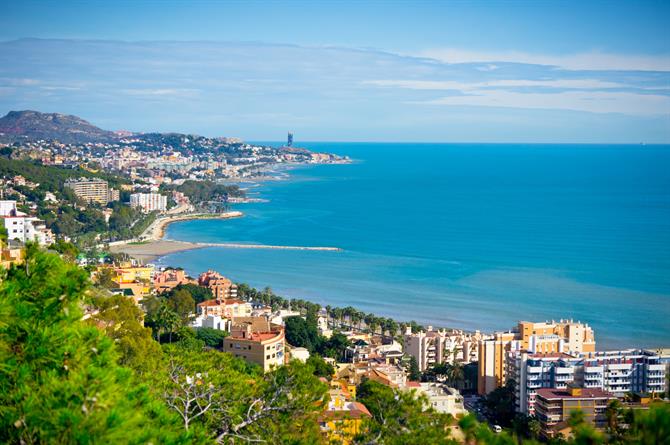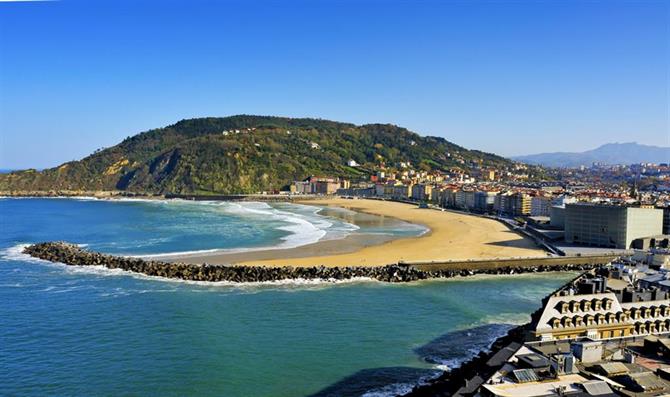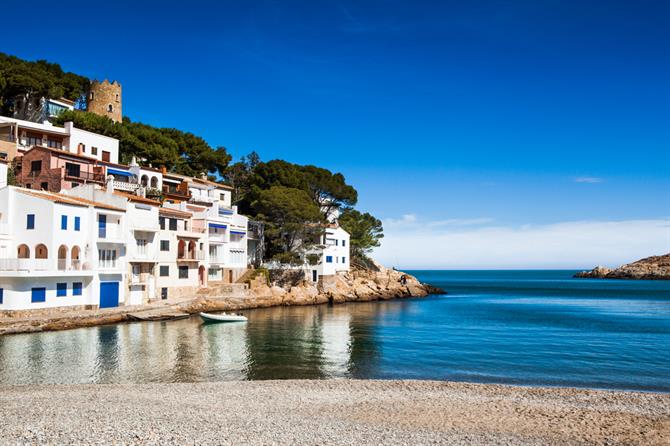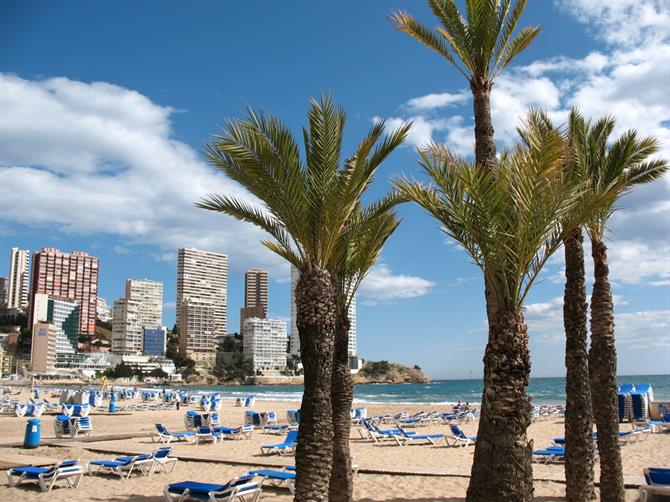The Spanish Holiday Rental Law could become a challenge to face once you start your business with your property.
It’s been almost five years since changes to the LAU (Spanish Urban Rental Law) were introduced, affecting Spanish holiday rentals. Since the Spanish Government changed the law, we have been working its way across the 17 autonomous communities to find out exactly how the legislation has been interpreted and what a holiday homeowner should do to apply for their licence.
Not all regions have rolled out the option to apply for a licence; but most of them have finally published a decree. Others, like Castilla La Mancha, Canary Islands, and Madrid have decrees now under evaluation, but as yet no a solid legal text.
In this article, we report on the current situation for holiday rental licence application in each region. We’ll keep the article updated as we receive information. You’ll find links to articles on regions where licence guidelines are available. The list runs in alphabetical order.

Andalucia (capital Seville)
Holiday rental law in Andalucia is close to its second birthday. The decree has received several critics due to severe requirements such as the forced commitment to have air conditioning in every room.
Also, keep in mind that the requirements would vary depending on the type of land where your property is placed. Properties placed in towns with less than 20.000 must comply with the Rural Tourist Accommodation law. On 7th February 2018, the government issued a modification (Article 40, Decreto 28/2018) relating to holiday rental properties, and specifically those inland/rural locations. Homeowners in rural locations who previously did not meet the legal requirements to obtain either a rural holiday rental licence or a holiday rental licence can now apply for the holiday rental licence and immediately begin to promote their properties to potential guests and accept booking reservations.
Aragon (capital Zaragoza)
Before May 2015, holiday rentals in Aragon were regulated with the old LAU. However, they published a new decree that approves changes to the regulation for holiday accommodation in the region introducing ‘Viviendas Turisticas’ as a regulated tourist accommodation type.
You need to apply for a licence and as with most regions, to do so you will need to present a Declaración de Responsable (Declaration of Responsibility). Owners and agencies must include the inscription number in all advertising.
The approved decree specifically excludes owners or agents that rent two or more houses in the same building mentioning that the applicable law in those cases is of Apartamentos Turísticos.
The local government is actively pursuing owners who are operating without a licence with fines starting at 600 € and reaching up to 90,000 €. If you need to apply for a holiday rental licence in Aragon, you must follow the guidelines set out the regional decree for Viviendas Turisticas (holiday rentals) (Spanish text).
Asturias (capital Oviedo)
Since 2016, Decree 48/2016 of holiday rentals in Asturias is approved. It is a simple classification in which the greatest particularity lies in the classification of the home as Viviendas Vacacionales or Casas de Aldea, terms used to differentiate between urban and rural holiday rentals respectively.
Tourist apartments are not included in this regulation, so other regulations must be considered. To register in the Register of Tourism Companies and Activities of Asturias, it is necessary to submit a Responsible Declaration together with the attached documentation.
Balearic Islands (capital Palma de Mallorca)
The Balearic Islands government has managed to complicate their regulations for holiday rental accommodation. It is now one of the regions that have generated most controversy with the modification of its Tourism Law last summer, through Decree Law 6/2017.
Currently, you can only request a rental license if you own a villa or house, as long as you are within the areas authorized by the Consell.
This has caused great discontent for both owners and many tourists, as well as the adoption of Eco Tax. Both the regional association of Balearic Islands, Aptur, and the Spanish Federation of Housing and Tourist Apartments, Fevitur, are working to prepare feasible alternatives to the regulation as the CNMC already denounced it.

Basque Country - Pais Vasco (capital Vitoria)
The regional Basque government approved a new tourism decree in September 2016. The current decree estate that you can rent your property per room, something that not all the regions included in their decrees.
It is now compulsory for holiday rental properties to be inscribed in the Registro de Empresas Turisticas, this includes privately owned and run holiday homes. Owners and agencies must include the inscription number in all advertising.
Canary Islands (capitals Las Palmas de Gran Canaria and Santa Cruz de Tenerife)
Currently, the Canary Islands holiday rental law is paralyzed. The National Commission of Markets and Competition (CNMC) submitted its claims to the court against the government due to the articles and requirements that acted against the free commercialization and use of housing.
Excluding tourist areas from the cities left most of the owners outside the regulation of the Canarian government which triggered CNMC and the Association Canaria Holiday Rental (Ascav) legal actions. Now, the Superior Court of Justice of the Canary Islands has revoked these articles from the decree 113/2015, which regulated holiday rentals on the islands.
Cantabria (capital Santander)
On the 22nd March 2014, Cantabria amended their Tourism Decree to regulate the short-term holiday rental market for Viviendas Turisticas (private holiday homes). This terminology now ceases to exist in the region and owners should re-register their holiday rental as an ‘Alojamiento Turistico Extrahotelero’. The foundations for applying for the registration and licence are one of the strictest we have come across. Read our article on how to apply for your holiday rental licence in Cantabria.
Castile-La Mancha (capital Toledo)
Although there is no specific regulation for holiday rentals in Castilla La Mancha, the Regional Directorate of Tourism of Castilla-La Mancha has put in place mechanisms to have a draft of an upcoming decree this year.
For now, in case your home is considered a rural holiday rental, you can apply for a licence as a Rural House, but you will need to take your application to the local tourism office and ask them to study your case. We will keep you informed of any updates in the region.
Castile and León (capital Valladolid)
Since February 2017, the region of Castilla y León has its specific holiday rental regulation. Decree 17/2017 is the document that sets the guidelines to follow for owners and guests with their properties, listing the requirements and procedures to continue in order to register their current rentals within the region.

Catalonia (capital Barcelona)
In Catalonia, the legislation allowing private homes to be used and advertised for tourist purposes, was introduced at the back end of 2011 and the Catalan Government are organised with the administration and distribution of licence applications.
One issue is the inconsistency in licence taxes being issued by each local town hall. There is no set fee, with each town hall setting its own price. And in Barcelona city they suspended the issue of licences back in May 2014, whilst it reestablishes guidelines and deals with illegal rentals in the city.
We recommend you read the following article on How to Apply for your Holiday Rental Licence in Catalonia. There are various links in the article to updated posts on Catalonia.
Extremadura (capital Mérida)
Extremadura is another community, which does not currently have specific regulations in place for private homes to offer short-term holiday accommodation. If you want to rent your property out, you must do so under the LAU and again without promotion as tourist accommodation.
Galicia (capital Santiago de Compostela)
After its release of Decree 12/2017 of holiday rental law in Galicia, the northern region joins the trend of all other Comunidades Autonomas with tourist accommodation regulations. Among other modifications, the Decree includes two definitions of vacation homes; Vivienda Turística (VT) and Vivienda de Uso Turístico (VUT).
The owner will have to ensure that his property complies with the requirements established in the regional decree. Although, like the Canary decree, the CNMC has recently submitted an appeal to this norm.
La Rioja (capital Logroño)
Holiday Rental Law in La Rioja came into effect in 201. After its publication in March, Decree 10/2017 determines the requirements and guidelines to be followed in order to incorporate the houses for tourist use into the Registry of Tourism Service Providers of the Rioja community.
Community of Madrid (capital Madrid)
Madrid introduced regulations at the end of July 2014. Main points to watch out for in their holiday rentals decree include the five-day minimum duration and single room occupation is not permitted.
In March 2015, the CNMC (National Commission for Markets and Competence) has appealed against the decree, specifically referring to the five-day minimum duration, considering it an obstacle for fair competence and demanding it to be eliminated.
Recently, Superior Court of Justice of Madrid has revoked the law due to CNMC claims. Now, both the regional government of Madrid and the capital city council negotiate a brand new decree to regulate holiday rentals.
Region of Murcia (capital Murcia)
The volume of holiday rentals continues to grow in the Region of Murcia. Holiday rental activity in this province has been regulated since 2005 by Decree 75/2005, which was later modified by Decree 37/2011 (Technical description checks) from the Murcia Government.
The current holiday rental law in Murcia develops the general guidelines that determine the process of obtaining tourist licences and requirements for tourists apartments and holiday rentals.
Navarre (capital Pamplona)
In Navarre, or Navarra, you can apply for a licence under two categories: Casa Rural (if your home is built in the traditional architectural style) and Apartamento Turistico (whether you have an apartment or bungalow, chalet or villa (Vivienda Turistica) in Navarra, you should apply under the category ‘Apartamento Turistico’ for your licence)
You need to make your licence application in the principal Tourism Office in Pamplona. There is no fee to apply, but once your application has been processed and sent to your local ayuntamiento, you may be requested to pay a fee for registering details with the local authorities. You must include your licence details in any advertising you do for your holiday rental.

Valencian Community (capital Valencia)
A registration system was introduced back in 2009, allowing owners and agents to register their holiday rentals in Valencia. However, the decree changed at the beginning of January 2015 and it is now obligatory to register your property with the Registro de Empresas, Establecimientos y Profesiones Turística. You can read all about How to Apply for Holiday Rental Licences in the Valencian Community.
In our continued commitment to keeping owners up-to-date with the new legislation for holiday rental licences in Spain, we’ll keep posting updates to this article as we receive them, so please keep checking back.
